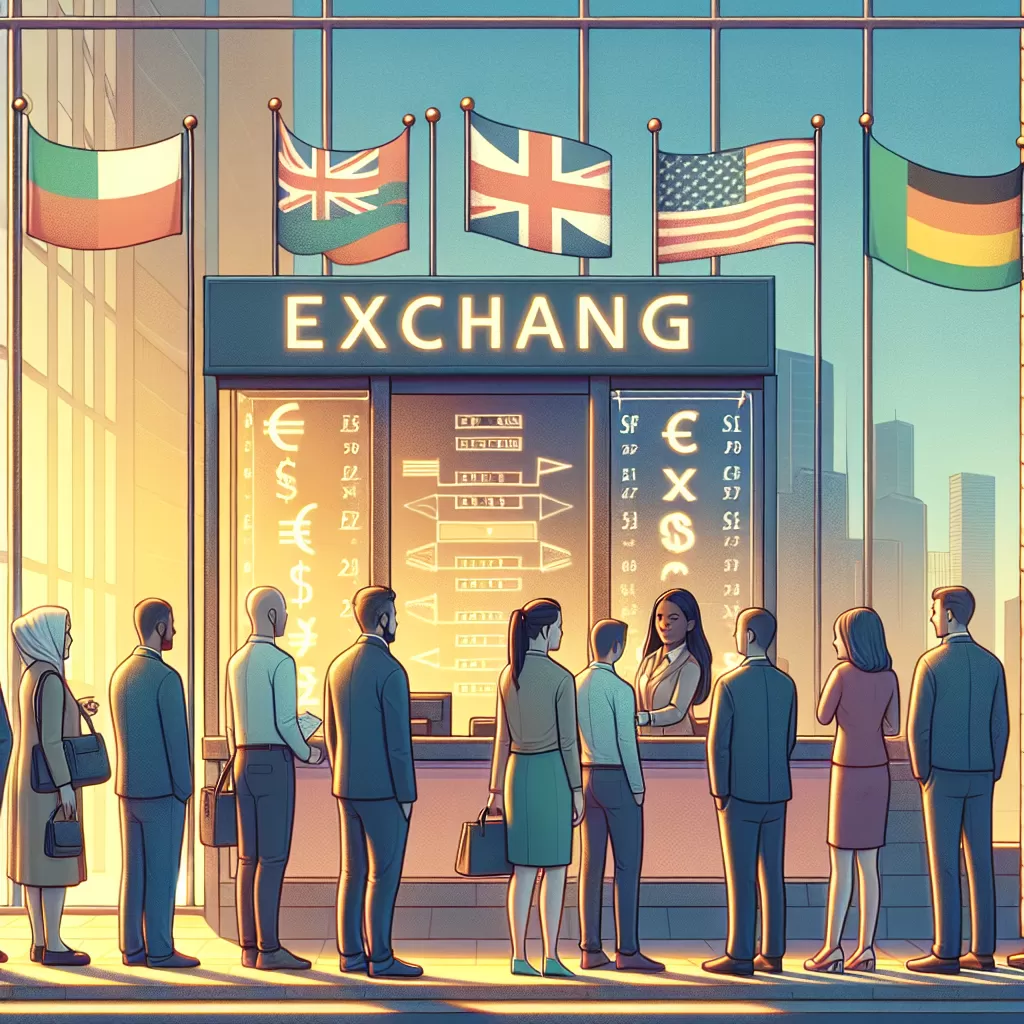Where Can I Exchange My Currency
Follow Currency Mart April 10, 2024
Where to purchase Foreign Currencies?

Where Can I Exchange My Currency - Your Guide to Currency Exchange
Introduction
Each year, millions of people travel across borders, undertake international trades, or carry out online transactions necessitating currency exchange. But amidst the vast sea of exchange outlets, where can you get the best rates? That is a question I, as the Guardian of currency exchange, will help you uncover.High-street Banks
One of the most traditional and secure places to exchange your currency is through high-street banks. Institutions such as TD Canada Trust, Royal Bank of Canada, and Bank of Nova Scotia offer currency exchange services for their clients. Their rates, however, may not be the most competitive due to many overheads and operational costs.Online Banks
In recent years, online banks like Tangerine and Simplii Financial have gained popularity. From the comfort of your home, you can exchange currency at any time, and the rates are generally more favourable than brick-and-mortar banks. These banks may require you to have an account with them before you can access their currency exchange services.Currency Exchange Bureaus
Currency exchange bureaus like Calforex and Continantal Currency Exchange are especially prominent in tourist areas and airports. They offer quick and convenient services, with a plethora of currencies available. Be forewarned that this convenience often comes at an elevated cost, with fees or commissions added to the exchange rate.Peer-to-Peer (P2P) Currency Exchange
Fintech companies like TransferWise (now Wise) offer a novel way of exchanging currency – peer-to-peer exchange. By matching users wanting to exchange reciprocal currencies, P2P platforms provide a cost-effective exchange rate that bypasses the traditional banking fees. These platforms are well-regulated and secure, making them an increasingly popular choice for many.Post Office
In several countries, the post office also provides currency exchange services. What they offer might vary, but it's worth checking if your local post office provides such services. The rates are often competitive, and it’s particularly handy if you live in a remote area where banks or exchange bureaux are not easily accessible.Travel Cards
Travel cards, like Revolut or the STACK Mastercard, provide competitive exchange rates and lower fees. They function like pre-paid debit cards – you load the card with your home currency and then spend it overseas at the local currency. However, it's essential that you read up on any potential hidden fees before committing to a travel card.At the Destination
Sometimes, the best place to exchange currency is at your destination, particularly in countries with less powerful or restricted currencies. Be sure to check up on policies and practice safe exchange habits, such as exchanging in a bank or hotel rather than on the street.Conclusion
Knowing where to exchange your currency is essential for saving money and ensuring smoother transactions. From traditional high-street banks to modern fintech solutions, there are numerous options available. The best one for you depends upon your individual needs and circumstances. Always do your research, compare the rates, and be sure to understand any additional fees or hidden charges. As the Guardian of currency exchange, my ultimate spell is knowledge, use it wisely and your currency exchange experience will surely be a pleasant one.
Where to purchase Foreign Currencies?